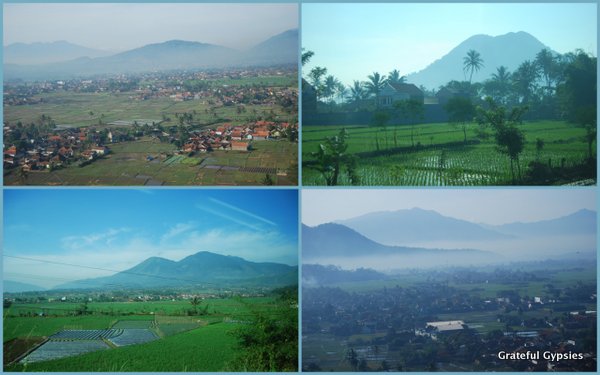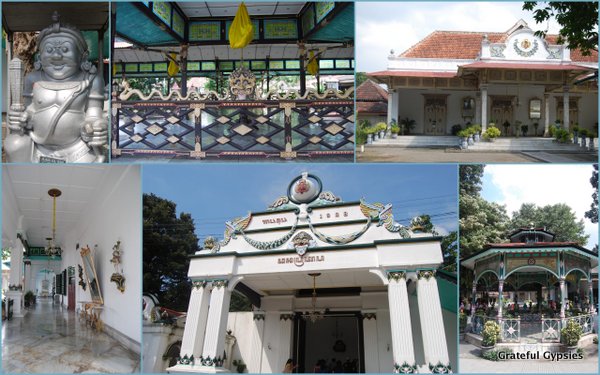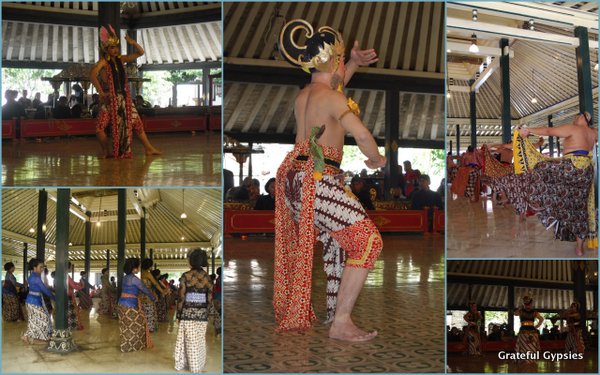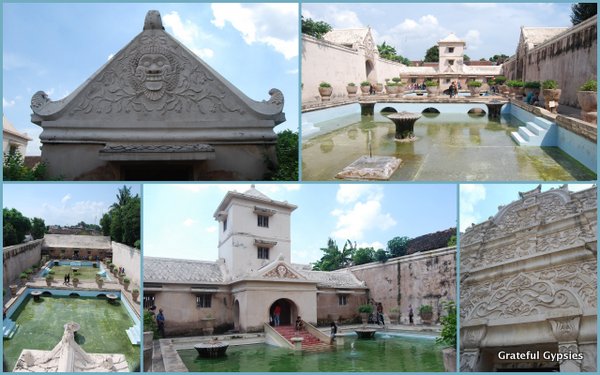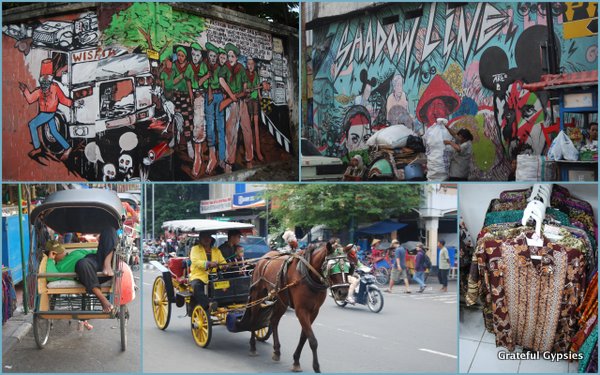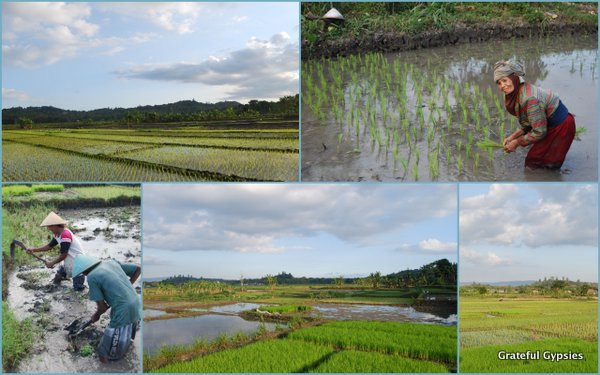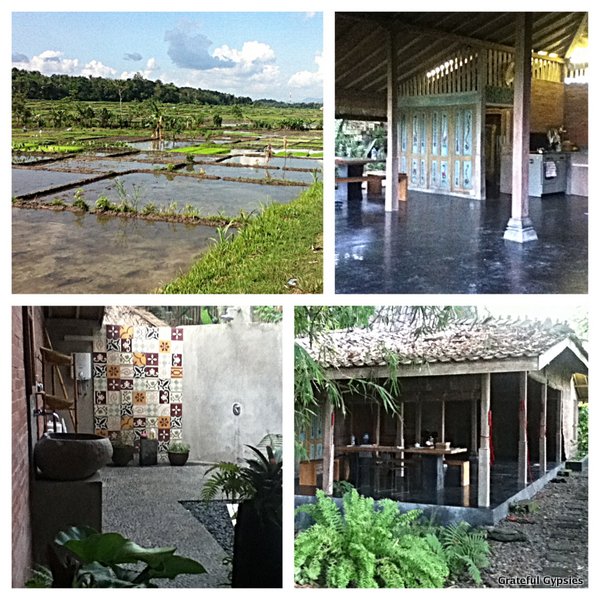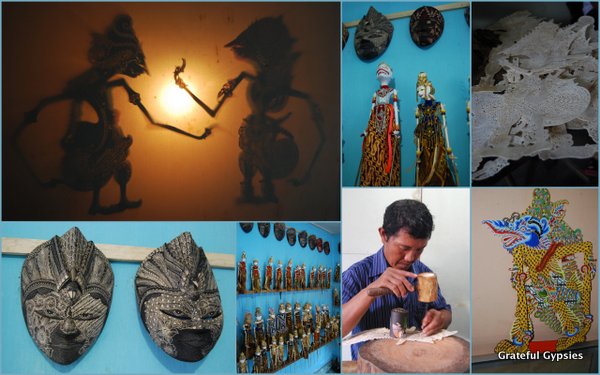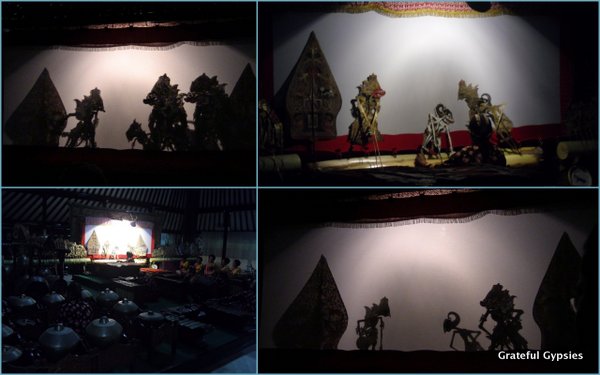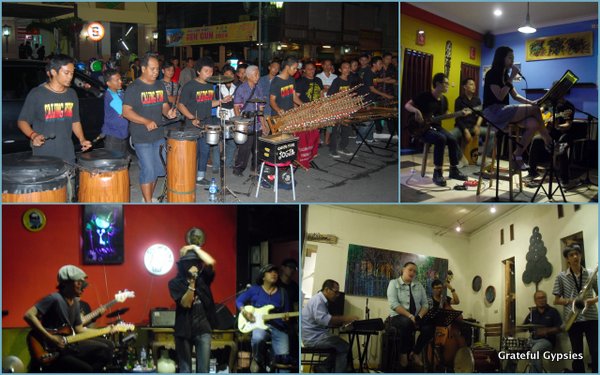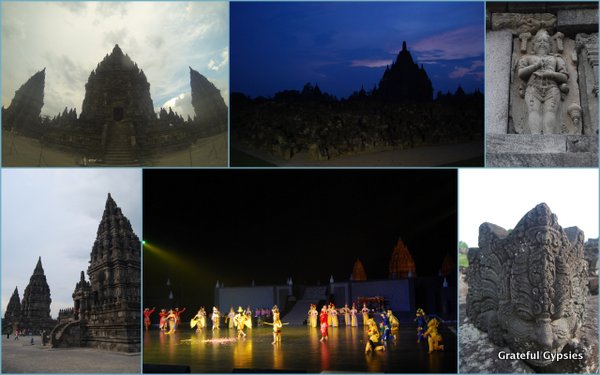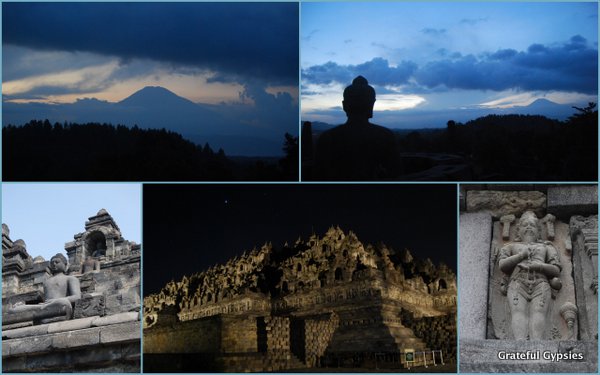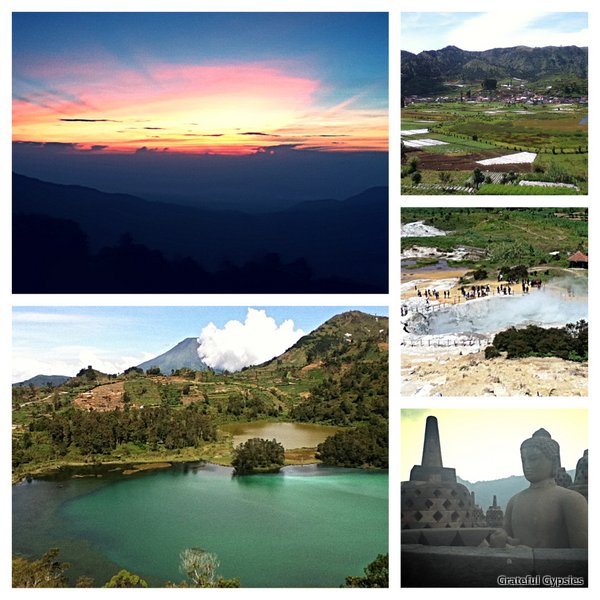A Week in Yogyakarta Posted by sasha on Dec 2, 2014 in Uncategorized
After a great couple of days in Jakarta, a nice trip to the botanical gardens of Bogor, and a wild day hiking up to a dormant volcano in Bandung, it was time to bid farewell to West Java. From Jakarta, we took a day train bound for Yogyakarta. Also commonly known as Jogja, this is the capital of the Yogyakarta Special Region and the most popular tourist destination in Java. It’s also a center for education and culture, which explains its nicknames – Kota Pelajar (Student’s City) and Kota Budaya (Cultural City). As for the actual name of the city, Yogya means “suitable, fit, proper”, and karta means “prosperous, flourishing” – “a city that is fit to prosper.” This city has a lot to offer, so make sure you budget enough time to fully explore. We were fortunate enough to hang around for an entire week, and I had the opportunity to take a crash course in Indonesian with the amazing teachers at Puri Bahasa. Here are some thoughts and tips for an awesome trip in Yogyakarta:
A Scenic Train Ride
If you’re heading to Yogyakarta from the capital or another big city such as Bandung, there are plenty of trains throughout the day. Make sure you get tickets for a day train, as the scenery is worth the price of the ticket alone and you’d be missing out on an overnight journey. Forget flying over this beautiful landscape and ride the rails – it’s cheaper, much more scenic, and better for the environment.
Explore a Palace
The main tourist attraction in the city is without a doubt the Kraton (Sultan’s Palace). Although the Sultan doesn’t wield as much power as he did before Indonesian independence, he is still the governor of the region. Visitors are allowed to stroll around part of the complex in the mornings, but it’s still used for official purposes the rest of the day. It’s a beautifully designed place, and well worth a couple of hours. Make sure you stick around for the daily cultural performance which differs from day to day.
- Mondays and Tuesdays – Javanese gamelan – 10am to 12 noon
- Wednesdays – wayang golek menak (wooden puppets) from 9am to 12 noon
- Thursdays – Javanese court dance from 10am to 12 noon
- Fridays – macapat (poetry reading) from 10am to 11:30am
- Saturdays – leather puppets – 9am to 1pm
- Sundays – wayang orang (theatrical performance) and dance performances from 9am to 12 noon
Check Out the Water Castle
Called Taman Sari in Indonesian, this pleasure garden of the Sultan is known to many as the Water Castle. There are a variety of bathing pools here, one of which was specifically for the Sultan’s harem. From his watchtower up above, he could look down and take his pick of the ladies. Here and at many other tourist sites in Java, don’t be surprised if you’re approached by students who need to practice their English by interviewing foreigners. Help the kids out, smile for some photos, and maybe practice a little Indonesian while you’re at it.
A Vibrant, Culturally Rich City
Around every corner in Jogja, you’ll find incredible graffiti murals. Horse-drawn carriages whizz tourists up and down Mailoboro – the main drag for shopping. Tons of stores vie for your Rupiah with colorful, traditional batik clothing. With plenty of galleries, museums, and performance venues, this very well may be the cultural heart of Java. There’s never a dull moment in this vibrant city, and culture vultures will love a visit to Yogyakarta.
Get Lost in the Rice Fields
While Jogja is definitely a big, congested city, it’s easy to escape to the peace and quiet of the surrounding rice fields. In just fifteen minutes, you can go from the bustling streets of downtown to straight up rural Indonesia on a motorbike. Car horns are replaced by birds chirping. Workers joke around with each other to pass the time and make their tough job more enjoyable. Some of them may even pose for a photo while making small talk. We spent a few nights staying out in the rice fields in a traditional joglo house, and it was hands down the best place we stayed on Java.
Shadow Puppets are a Big Deal
No visit to Yogyakarta is complete without checking out wayang kulit (leather puppets). This traditional Javanese performance art has been around for hundreds of years, and it remains an important part of the local culture. Workshops are scattered across the city, where you can see how delicate a process it is crafting these stunning puppets. There’s also an evening performance so you can see a puppeteer in action backed by a gamelan orchestra. Although you most likely won’t catch much of the dialogue, it’s still an interesting show.
Music is Everywhere
As avid live music fans, we had a great time taking in lots of shows in Jogja. The city is rockin’ every night of the week, with a variety of venues hosting singers and bands. You’ll also find local groups jamming out in the streets on traditional instruments day and night. There was just something about going from a very traditional Javanese dance show in the Kraton to seeing a Rolling Stones cover band in a bar the same night that put a smile on my face. That’s just the kind of place that Yogyakarta is, and I personally loved it.
Day Trips to Sacred Temples
Base yourself in Yogyakarta for a while, and it’s easy to take day trips out to the Hindu temple of Prambanan and the Buddhist temple of Borobudur. Join a tour, hire a driver and a guide, or do what we did and just rent your own motorbike and cruise out there yourself. Prambanan is a short trip and easily doable in an afternoon. Stick around for dinner and an amazing Ramayana performance before heading back to the city.
As it’s a bit farther away, you might want to go spend a night out at Borobudur. If you stay at the Manohara hotel, you have the option of paying a bit extra to remain on the temple after sunset or go up before sunrise. We went with the former and ended up being the only two people on the biggest Buddhist monument in the world. Not too shabby.
If you’re up for an adventure and you’ve got another couple of days to burn, consider heading up to the Dieng Plateau. Enjoy much cooler temperatures and some absolutely incredibly scenery there, and put your Indonesian to use by staying with a local family – many people rent out spare rooms here to tourists and are thrilled to find tourists speaking their language.
Get Your Learn On
There’s perhaps no better place to learn Indonesian than Yogyakarta. With a variety of schools, you can do anything from taking a few hours of private classes to signing up for full-on university programs. I can personally recommend the folks at Puri Bahasa, as they helped me get to a basic level of Indonesian after just one week. Learning a bit of the language really made our trip so much better. Although it was challenging and at times frustrating, doing my best to communicate with people in Indonesian made for a more rewarding experience than simply relying on a guide or translator the whole time. If you can’t make it to Jogja to take classes, though, we’ve got you covered if you want to learn Indonesian.

Build vocabulary, practice pronunciation, and more with Transparent Language Online. Available anytime, anywhere, on any device.
About the Author: sasha
Sasha is an English teacher, writer, photographer, and videographer from the great state of Michigan. Upon graduating from Michigan State University, he moved to China and spent 5+ years living, working, studying, and traveling there. He also studied Indonesian Language & Culture in Bali for a year. He and his wife run the travel blog Grateful Gypsies, and they're currently trying the digital nomad lifestyle across Latin America.



